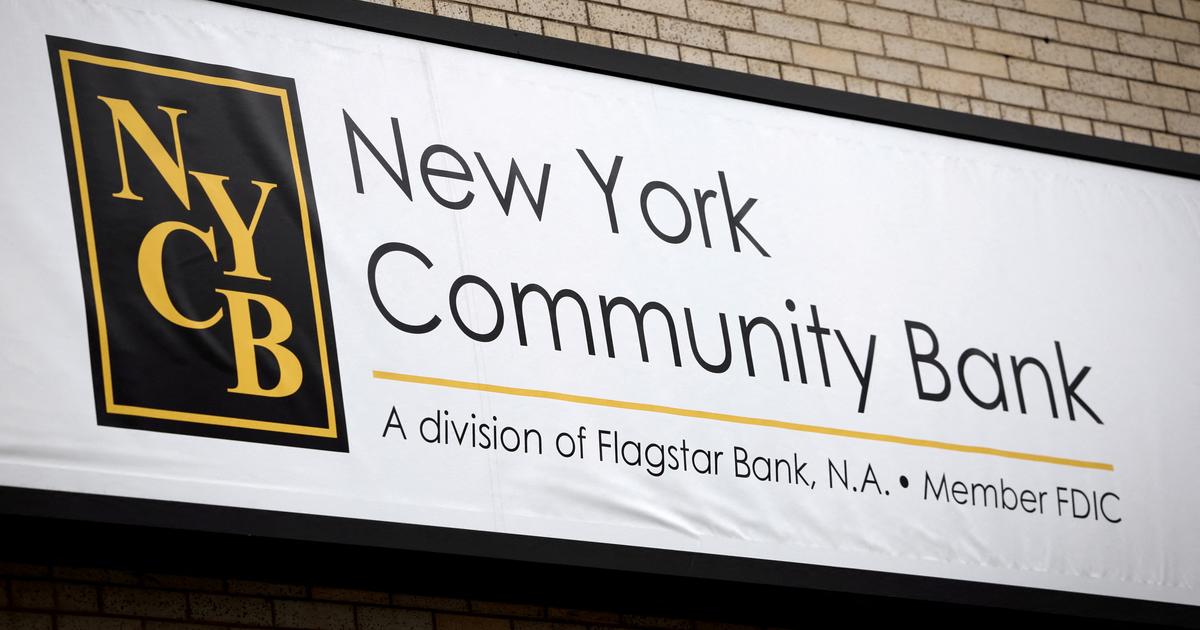First Republic Bank shares collapsed on the stock market this Wednesday to a record low two days after the bank confessed the magnitude of the flight of deposits it suffered as a result of the fall of Silicon Valley Bank and Signature Bank last March.
The bank's price has fallen by more than 40%, reducing its value on the stock market to less than 1,000 million dollars.
The bank accumulates a collapse of more than 95% last March.
Investors fear that the entity will enter a spiral that will make its fall inevitable.
The drop in the price and the flight of deposits feed each other.
The managers' plans to put the bank back on track need time, but an acceleration in the flight of deposits may force the intervention or rescue of the entity.
The authorities fear that the fall of a new entity could reignite a financial storm that seemed contained.
The instability may even cause the Federal Reserve to make the first pause in more than a year in raising interest rates at its meeting next week.
The collapse of First Republic on the Stock Market also makes any capital increase operation difficult, as it would be very dilutive for current shareholders.
The bank has acknowledged that it is studying strategic alternatives and among those that have come to light is the sale of assets and the possible raising of new capital.
In these circumstances, the San Francisco-based bank's advisers are turning to competing entities to ask for their support in a kind of new private bailout of the bank, as revealed by CNBC.
Advisers are trying to persuade big US banks to buy bonds from the San Francisco-based company at above-market rates.
The idea is that they assume a loss of a few billion dollars, less than the rates that the Federal Deposit Insurance Corporation (FDIC) would end up passing on associated with a hypothetical First Republic bankruptcy, CNBC reported on Wednesday.
As part of that plan, advisers have already lined up potential buyers for the new shares, CNBC said, citing unnamed sources.
The shares have reached an intraday minimum of $4.76 per share, its historical minimum, which implied a 41% drop on the previous day's close, when it had already suffered a 49% drop.
Since the fall of Silicon Valley Bank (SVB) and Signature Bank, First Republic was pointed out as the next victim.
The entity's profile is very similar to that of the SVB.
In his presentation of results on Monday, he acknowledged that clients withdrew 58% of deposits in the first quarter, 102,000 million dollars (about 92,000 million euros) of the 176,400 million dollars they had in the entity in December 2022. .
It contained the crisis thanks to the fact that the large US entities, led by JP Morgan, bailed it out with 30,000 million dollars in deposits, with which it ended the quarter with 104,474 million.
He also had to find other ways to bolster liquidity, including appealing to the Federal Reserve.
In parallel with the search for new capital, First Republic Bank has been studying the possibility of divesting itself of between 50,000 and 100,000 million dollars in assets, in an attempt to overcome the crisis.
The sales, which include mortgages and long-term securities, would be aimed at narrowing the mismatch between the bank's assets and liabilities, one of the factors that has sent First Republic reeling after the run on deposits in March, according to people familiar with the matter cited by Bloomberg.
Potential buyers, including large US banks, could receive
warrants
or preferred stock as an incentive to buy assets above their market value.
Follow all the information on
Economy
and
Business
on
and
, or in our
weekly newsletter















